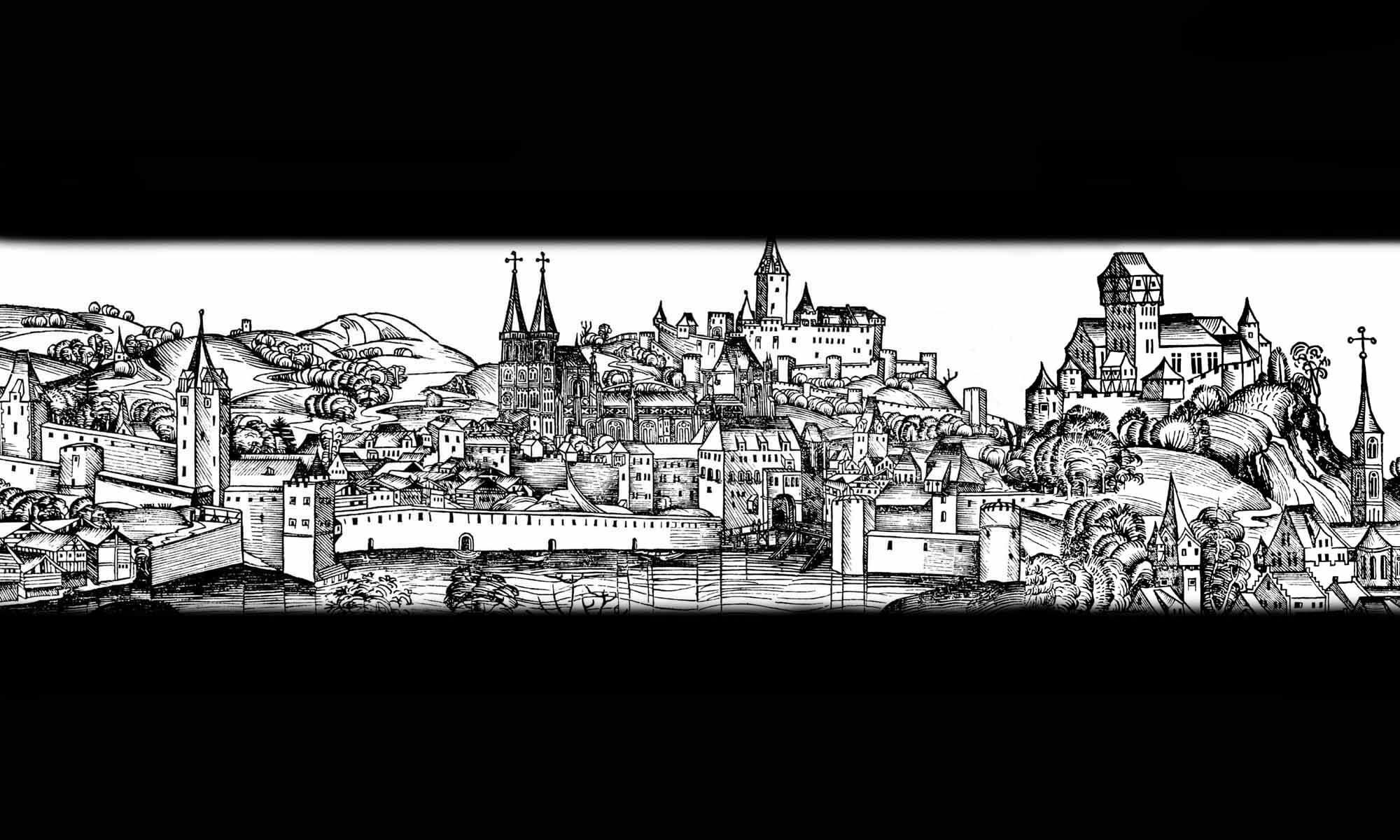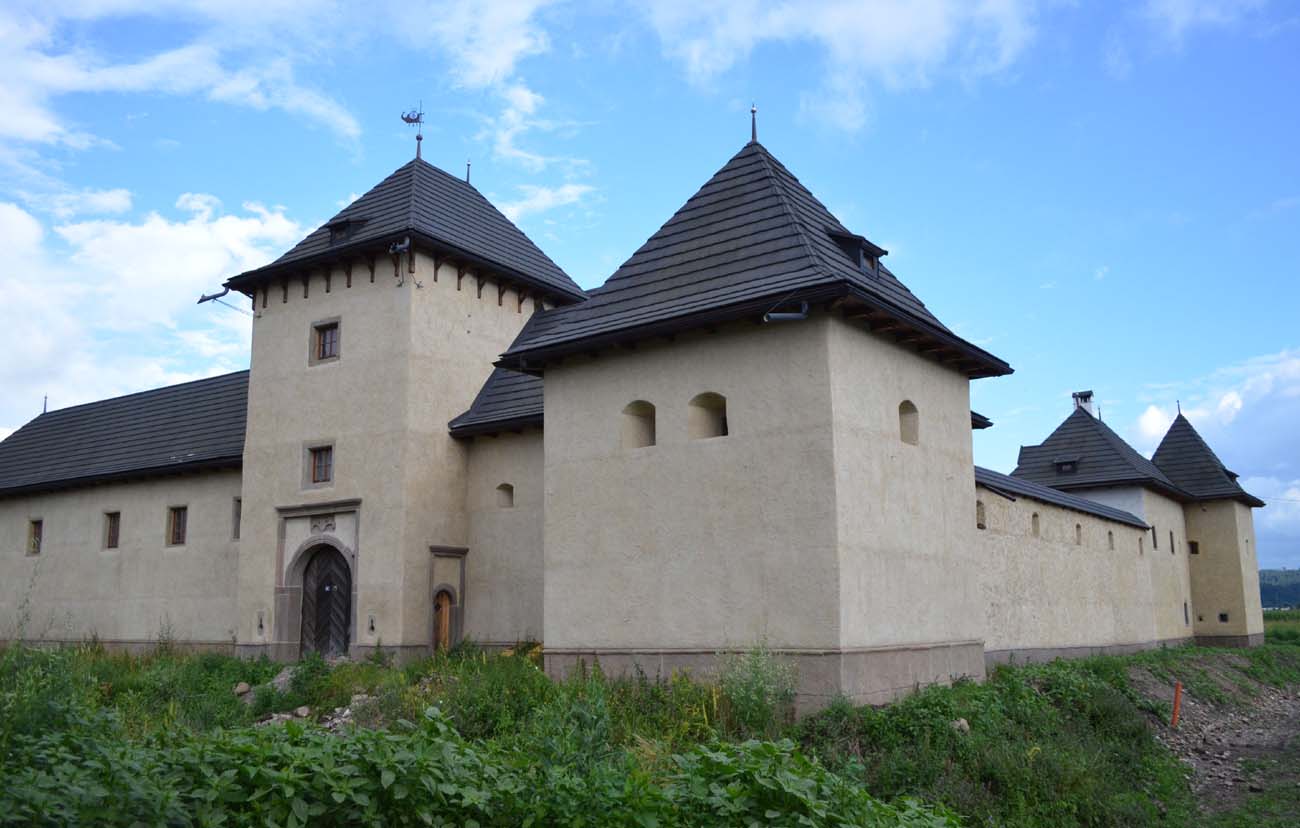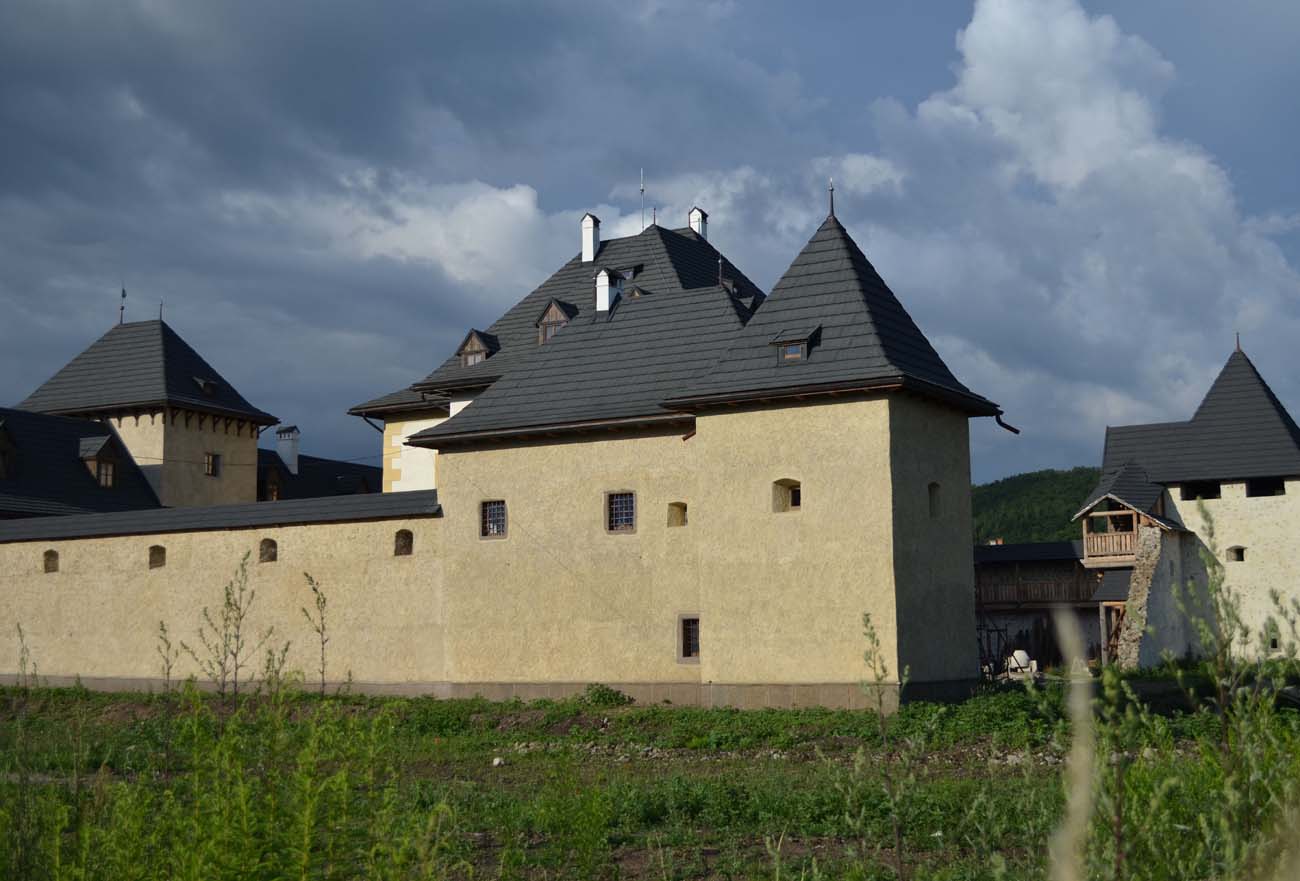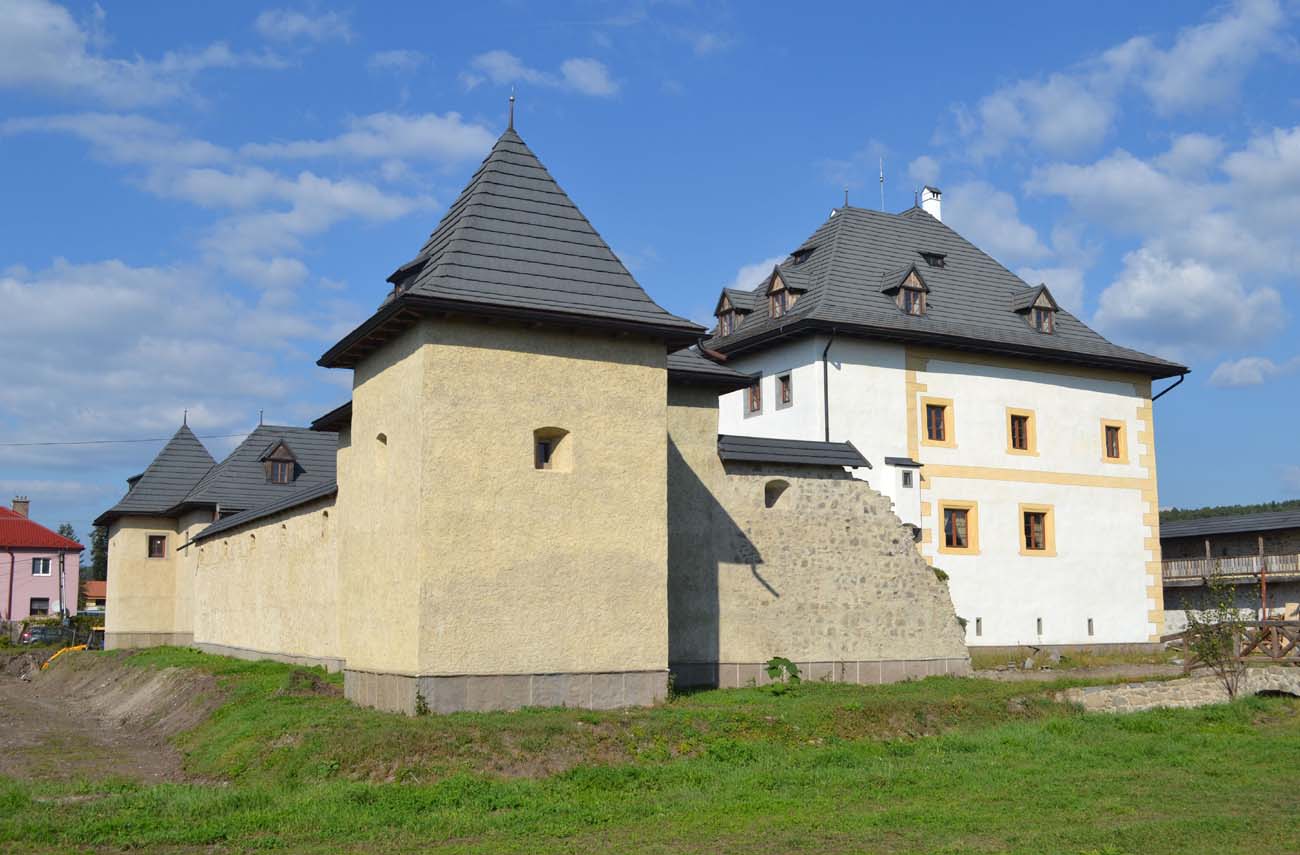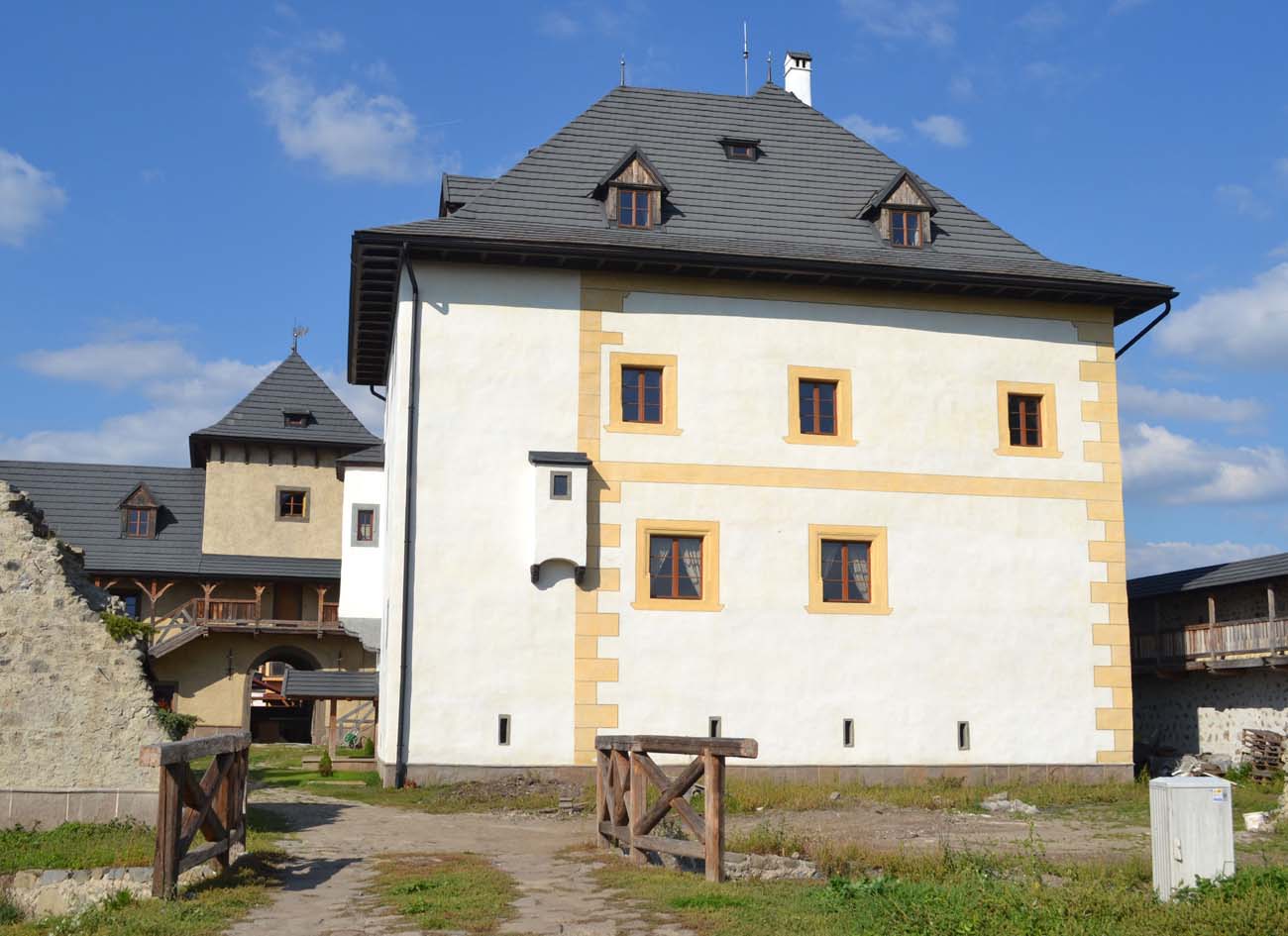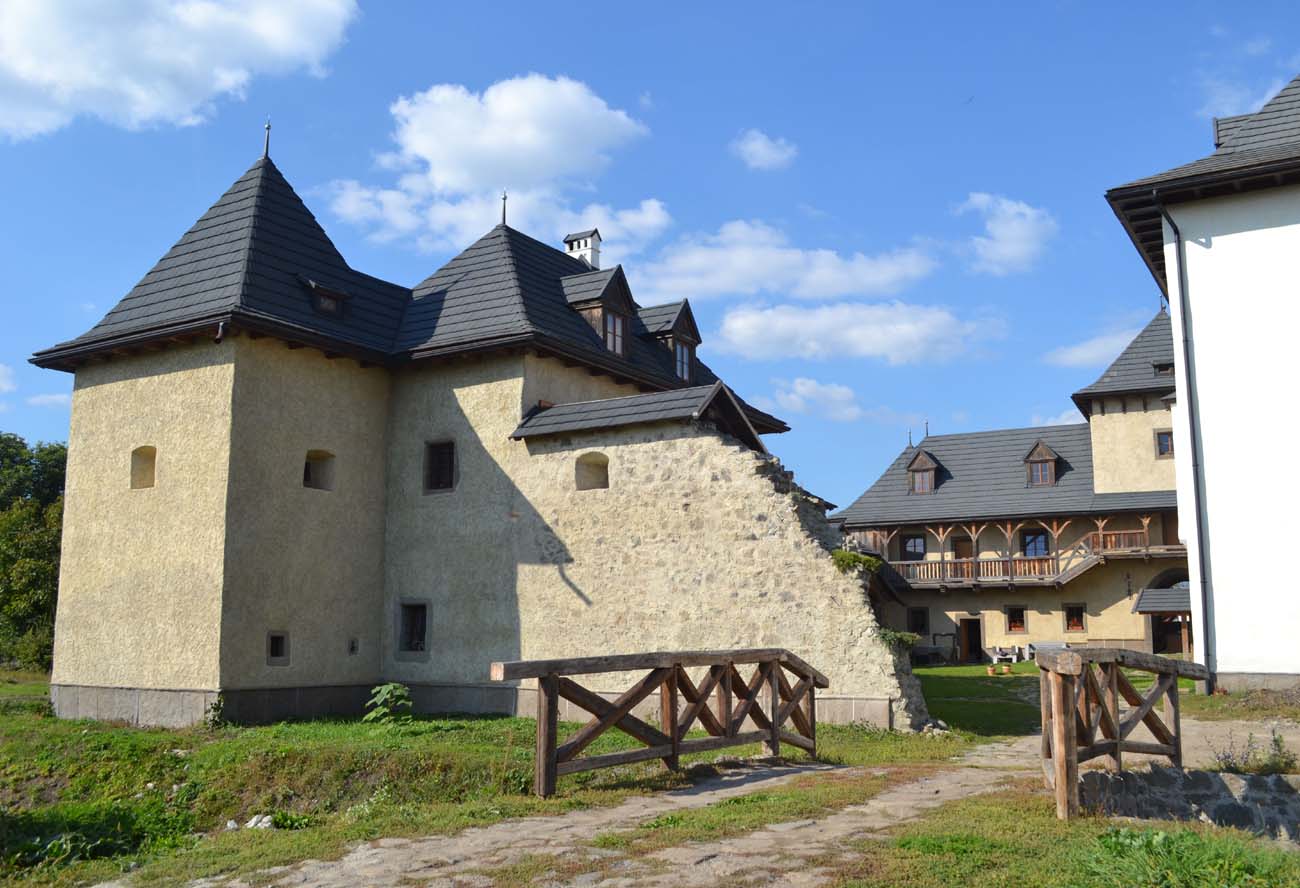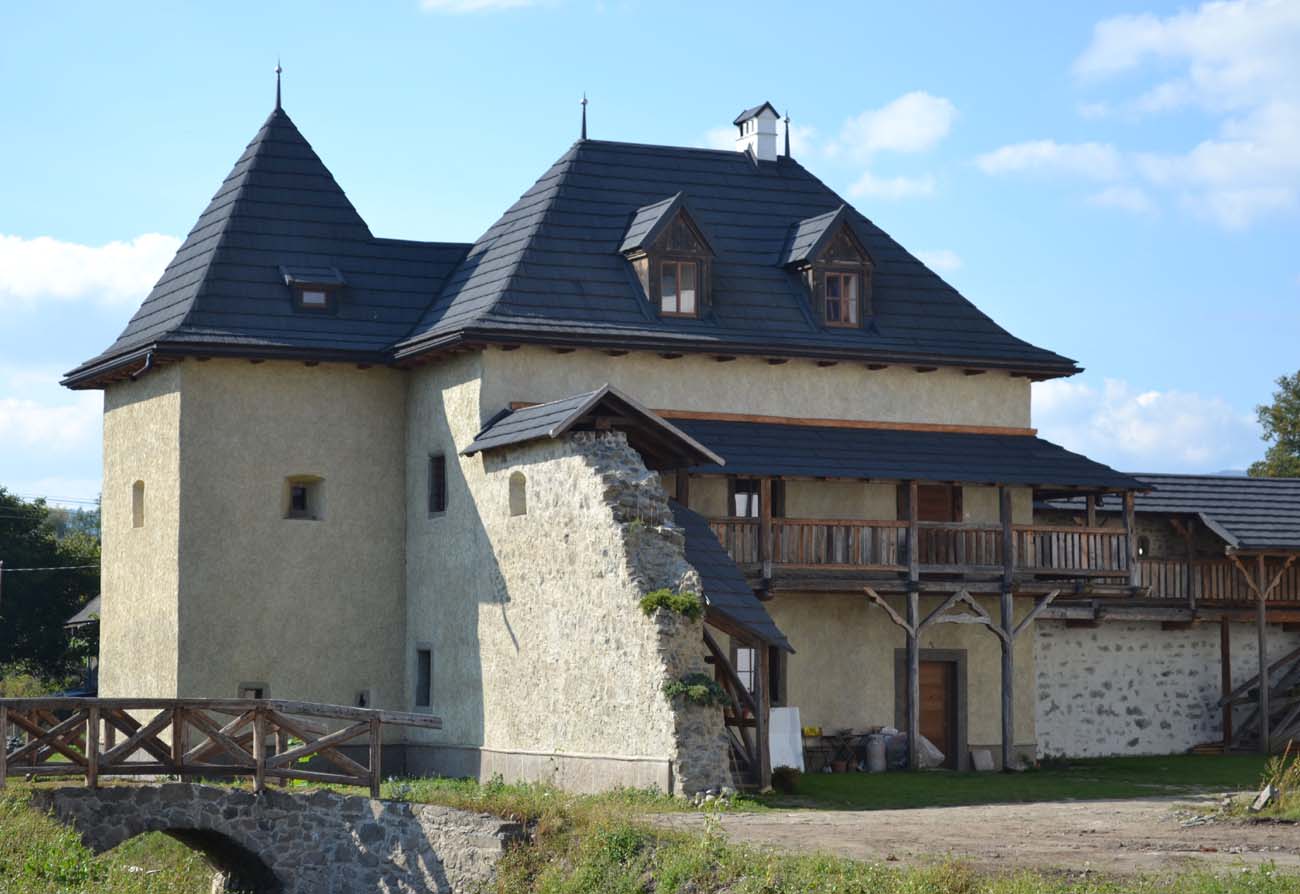History
The first, late Gothic residential and defensive residence in Hronsek was built in the 14th century on the initiative of the Prokop family. In 1576, it was rebuilt by the Soósy family and fortified in connection with the approaching Turkish threat. During the Rakoczi anti-Habsburg uprising, the allegedly insurgent mint operated in it. Remodels from the eighteenth and nineteenth centuries did not change much in the shape and structure of the building.
Architecture
The castle was surrounded by the perimeter of the defensive wall with four corner, four-sided towers, around which a moat once ran. Access to the interior was provided by a drawbridge, hidden in a four-sided niche in which there was a semicircular gate portal. The main residential building was erected in the middle of the inner courtyard as a two-story building on a rectangular plan. In the ground floor, it had slit and key arrowslits, while the higher storeys were pierced with slightly larger four-sided windows. Inside, in the great hall, the facades were covered with late-Gothic and Renaissance paintings.
Current state
The interior of the castle (called now Vodný Hrad) is not available for sightseeing. For a long time it has remained in ruin, but in recent years has undergone a thorough renovation.
bibliography:
Slovensko. Ilustrovaná encyklopédia pamiatok, red. P.Kresánek, Bratislava 2020.
